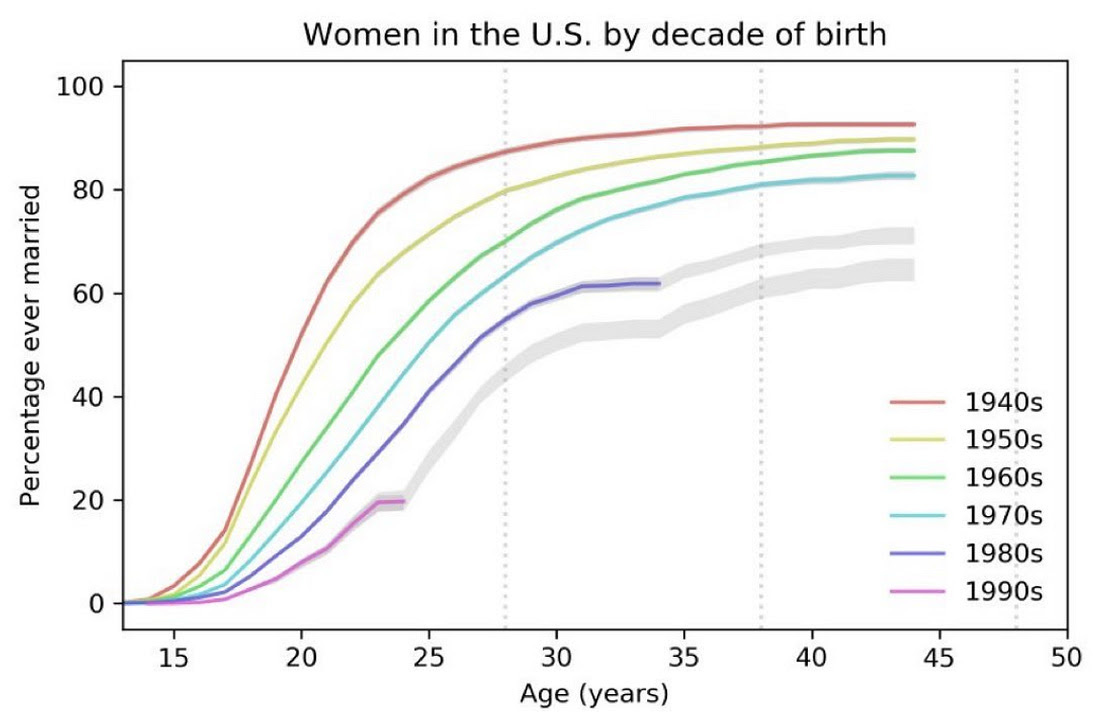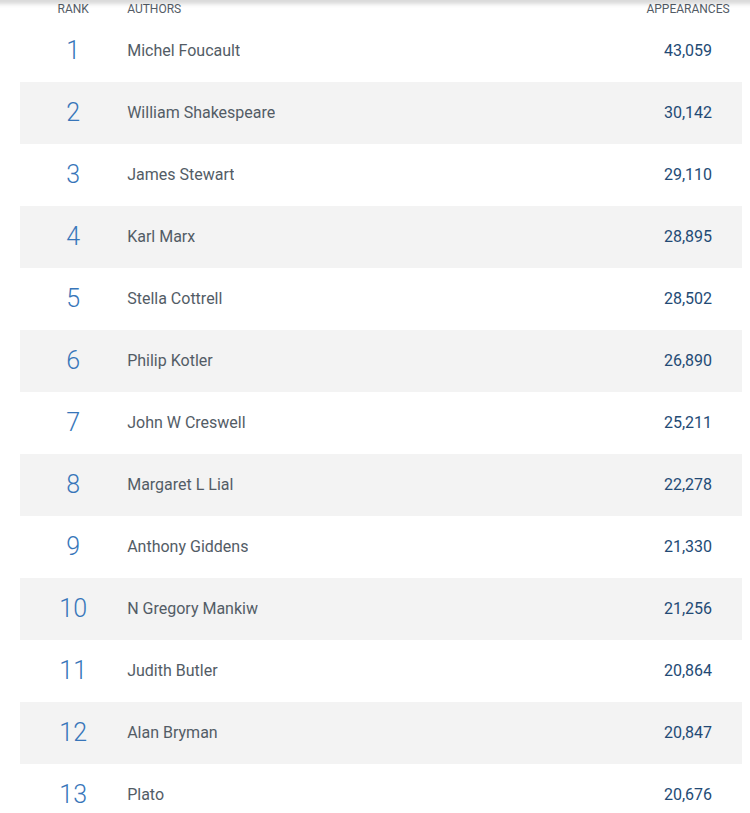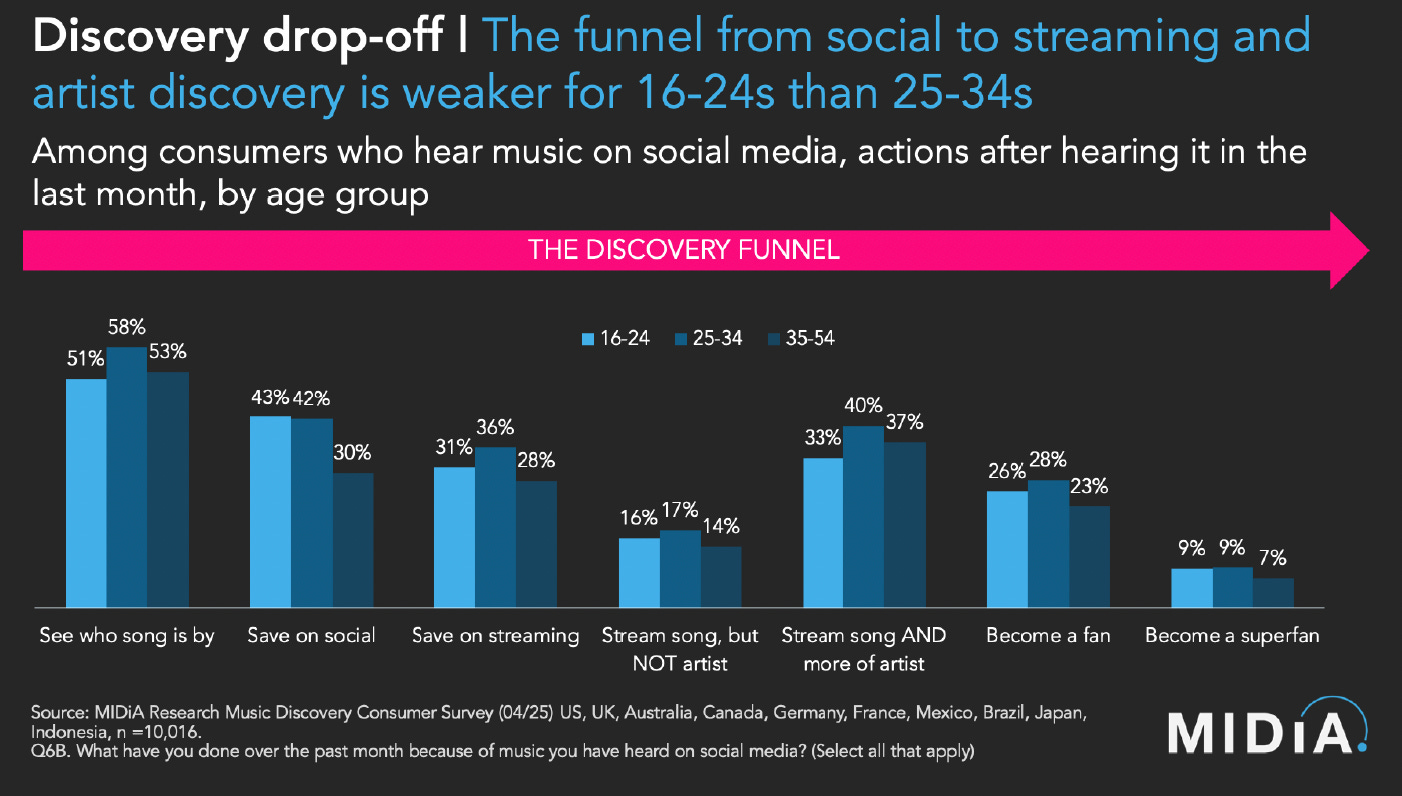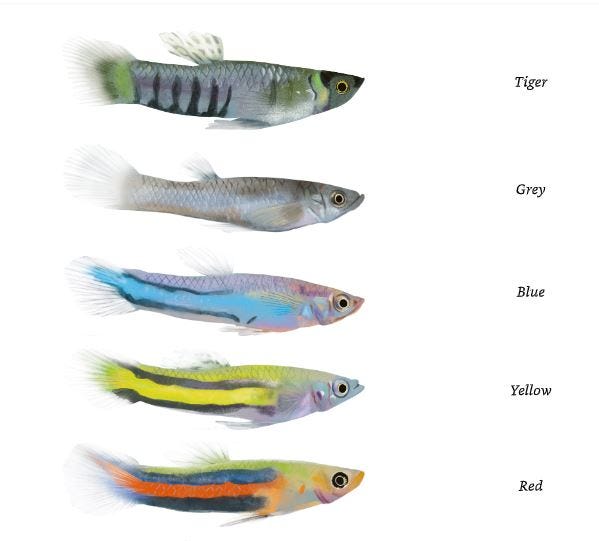How AI slop is killing the workplace, colour-coded fish sex, new dumb phone, the consumer choice revolution, Judith Butler vs Plato, and the art of candle light
Plus more links and quotes
Hello,
Welcome to Cultural Capital — and a particular welcome to all the new readers who joined over the last week. Thank you very much indeed for signing up. The newsletter is now at more than 17,000 subscribers!
This is a weekly email rounding up everything interesting I read in books and on the internet over the last seven days. You can listen to the latest episode of the Cultural Capital podcast in which the leading British art historian Bendor Grosvenor explains how to read a painting here.
How higher education divides us
This is a really interesting and original piece about the political effects of the expansion of higher education by Janan Ganesh in the FT. He argues that “university growth will come to be seen as the event that did most to sunder once-cohesive western societies”. In Britain and America education is now the most important political and cultural dividing line.
At the time it was thought that the massive expansion of university access in the 1990s and 2000s might actually kill off conservatives because higher education seems to make people more liberal. In fact it had the unforeseen and highly dangerous consequence of creating two rival and culturally alien “sub-nations” within one country: broadly liberal university graduates vs broadly conservative non-graduates.
When fewer people went to university, graduates had no option but to hang out with non-graduates. So the two cultures mixed and understood each other. Now both worlds are large enough to be completely self-sustaining and for their members to marry and socialise within themselves. Though they are becoming more alienated from each other neither world is quite large or culturally powerful enough to decisively drag society in its preferred direction. Hence we get see-sawing chaos:
There are enough [graduates] to make people who don’t attend university feel excluded, but not enough to constitute an electoral plurality. Graduates can culturally dominate the rest of society for four or five years at a time, imposing their values and campus-honed identity jargon, then lose on polling day. Just under 40 per cent of Americans have done four years of college: enough to provoke, not enough to prevail.
Is marriage becoming a luxury good?
Here’s a good nugget from Derek Thompson’s excellent list of the 25 most interesting ideas he’s found in 2025. Marriage rates have declined drastically since the middle of the twentieth century. Take the typical 25 year-old woman, Thompson says: “If she was born in 1940, she had an 80 percent chance of being married. If born in the 1990, she had a ~20 percent chance of being married”.
And interestingly:
marriage rates are declining most among low-income and low-education groups. That means the marriages that do happen are more likely to involve higher-education, higher-income couples who have always had a lower divorce rate.
As the writer Rob Henderson often points out, liberal upper middle class couples generally subscribe to a more progressive theory of sexual relationships (date who you want, no pressure to settle down, no judgement etc) but their actual behaviour is highly conservative and traditional.
The age of mind-boggling consumer choice
I like reading about consumer trends. They tend not to be the sort of thing high-falutin think-pieces and essays get written about. But whenever I read a history book I’m often struck that the details about what people in the past wore/ate/did with their free time are the most illuminating parts. Dominic Sandbrook does this brilliantly in his books about post-war Britain.
In journalism, Harry Wallop is the master of the art. He has a very interesting piece about the massive expansion of consumer choice:
The year after food rationing ended, Sainsbury’s – at the time the most sophisticated of all the grocery chains – sold a total of 700 products. It, along with Tesco, Asda and the rest, now sells well in excess of 30,000.
In 1953, Sainsbury’s sold the following types of coffee: Sainsbury’s Pure, Sainsbury’s French and Sainsbury’s Berries. It also sold four different types of coffee ‘essence’ the term it used for both coffee granules and a liquid coffee: Nescafe, Ricory, Lyons’ Bev and Camp. Including all the different sizes of tins and bottles, there were a total of 12 coffees on offer. Now? They sell at least 300.
And this is just amazing: in 1953, Sainsbury’s sold only two types of dried herb. It now sells “261 different dried herbs and spices, plus 37 fresh ones” including “Tahini, Makrut lime leaves, fajita seasoning, saffron, ancho chilli flakes”. This is an astonishing journey for a society to go on. There is no parallel in history. One day it will seem one of the salient facts of our time. Though I do sometimes think we would be happier as a society if we had only two types of dried herb.
Judith Butler vs Plato
An interesting analysis of the most assigned authors on American university syllabuses finds that Judith Butler is assigned more than Plato. A colleague told me about a conversation he had about this study: “I found myself exclaiming, ‘Judith Butler is a nutter’ before feeling forced to add, ‘Mind you, so was Plato’”.
The rise of “workslop”
Here is a great coinage in the Harvard Business Review: “workslop”. Social media is currently clogged with “AI slop” low grade videos, images and text churned out by machines. Workplaces increasingly have the same problem:
As AI tools become more accessible, workers are increasingly able to quickly produce polished output: well-formatted slides, long, structured reports, seemingly articulate summaries of academic papers by non-experts, and usable code. But while some employees are using this ability to polish good work, others use it to create content that is actually unhelpful, incomplete, or missing crucial context about the project at hand.
“Workslop” wastes time by producing reams of redundant text, nonsensical emails that clog up communication and not-quite-good-enough text that has to be laboriously re-worked. “It was just a little confusing to understand what was actually going on in the email and what he actually meant to say”, complains one recipient of a rambling workslopped email. It reminds me of the problems encountered by coders who, as has been widely reported, seem spend more time fixing sloppy AI code than they would writing it themselves.
Cultural Capital will never be workslopped!
Social media is killing music discovery
Ian Leslie reports that TikTok is killing music discovery:
People who grew up on old media are more likely to notice when they hear new music (or hear about it), seek out more from the same artist then become fans. On social media new music just seems to “bounce off” consumers as they scroll: “16-34 year olds who come across a song on social media are less likely than older consumers to follow through and become a fan of the artist who made it.” As Leslie says, “TikTok and Insta are not portals to content but ends in themselves; devices for us to engineer our own dopamine hits.”
Colour-coded fish sex
I’ve been on a bit of a Richard Dawkins binge lately. Whatever you make of the anti-God stuff he is just a brilliant popular science writer, possibly the greatest ever — so passionate and charming and lucid.
I got through pretty much all of early Dawkins in my teens but I’d never read his more recent books. Last week I read The Genetic Book of the Dead. Allegedly it’s about what we can learn about animals’ past evolutionary environments from their present forms. Really, it’s another chance for Dawkins to go on in his engagingly boyish way about the wonders of evolution.
I loved this bit about the male fish of the species Poecilia parae which come in five colours, each with its own unique sexual strategy:
‘Tigers’ are the largest. They behave aggressively, chasing rival males away, and copulating with females by force. Greys are the smallest, and they manage to copulate only by occasionally sneaking up on females opportunistically. When they get away with it, it seems to be because otherwise aggressive males mistake them for females, which they do indeed resemble. Greys have the largest testes, presumably capable of producing the most sperm, perhaps to take advantage of their scarce opportunities to use it. [Male fish with] red, yellow, and blue tram-line [patterns] are of intermediate size. Rather than rape or sneak, they court females in a civilised manner, displaying their respective coloured flanks.
Perhaps human males should come colour coded like this.
Georges de la Tour
The exhibition I’d most like to see in the world at the moment is the Georges de la Tour show in Paris. De le Tour is famous for his beautiful, melancholy and mysterious candlelight effects (see also the picture at the top of this email). The Sunday Times’s legendary art critic Waldemar Janusczak believes de la Tour is up there with Caravaggio and writes beautifully about him:
Job Mocked by His Wife shows the biblical patriarch, whom God is testing by taking away his wealth and making him ill, being chastised by his wife, who looms over his shrivelled body in a robe of glowing red, illuminated spectacularly by a flickering candle. What counts here is the magical mood into which we are being plunged: the sense of intimacy and thoughtfulness that glues us to the picture. Job is so shrivelled and pathetic. His wife is so looming and symbolic. Although we are technically in the big world of the Bible, it feels as if we are somewhere modest and true
“X mocked by his wife” is surely an underutilised genre in painting. Someone should produce more pictures along these lines. There are plenty of characters in history and mythology I would like to see mocked by their wives.
Dumb phone recommendation
Regular readers will know that I have ditched my smartphone and now use a dumb phone, the Qin F21 Pro. It’s a great compromise: functional but non addictive. It has WhatsApp, Maps and Spotify but it’s so small and fiddly that it’s almost completely undistracting. All you can really do is pathetically refresh the Guardian website on its tiny screen. The big test is that I can read for hours with it next to me without checking it — not something I ever managed with a smartphone.
My girlfriend has just bought a new dumb phone called the TTfone TT280. It’s very similar to the Qin F21 Pro but made — amazingly (worryingly?) — in the UK. She really likes it. It does WhatsApp, Spotify, Maps etc. It’s quite a bit chunkier than the Qin phone — it feels a bit like a toy. The battery seems worse and the phone in general is slower/less responsive. There is a useful review of it on Reddit here. It seems like the Qin is still the best choice (she’s switching back) but interesting to know this option is out there.
And finally…
Let me know what you’ve been reading/listening/watching!









You're absolutely right about having fewer choices in the supermarket - it's one of the reasons I prefer Aldi. You very quickly get decision fatigue when you have 8 different types of Greek yoghurt to choose from - such a waste of time and energy.
Not a husband being mocked by his wife, but you did put me in mind of this amazing painting by Simone Martini, showing the aftermath of Jesus wandering off without his parents https://www.liverpoolmuseums.org.uk/artifact/christ-discovered-temple